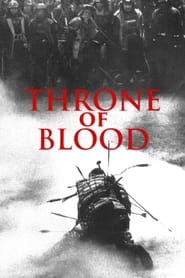Once asked if he wanted to pose philosophical questions in his films or whether he was merely making entertainment, [Akira Kurosawa] answered: “[…] When I look at Japanese history—or the history of the world for that matter—what I see is how man repeats himself over and over again.” For Kurosawa the pattern of repetition is destructive and it is this pattern which free his heroes attempt to destroy—as in the director’s Ikiru, for example.
— Donald Richie (Criterion)
It appeared that Laurence Olivier had liked Kurosawa's idea of showing Lady Macbeth as pregnant—because it gave a clear motivation to her actions—and had written to ask if he might borrow it for his production of the play. In the course of the letter, Olivier had remarked, somewhat gratuitously, that he believed the child born of the Macbeths would be an ugly and deformed one. To Kurosawa, this had seemed like a crude and inartistic comment, and he had consequently turned down Olivier's request.
— Satyajit Ray: Tokyo, Kyoto and Kurosawa (1967)
Synopsis: Returning to their lord's castle, samurai warriors Washizu and Miki are waylaid by a spirit who predicts their futures. When the first part of the spirit's prophecy comes true, Washizu's scheming wife, Asaji, presses him to speed up the rest of the spirit's prophecy by murdering his lord and usurping his place. Director Akira Kurosawa's resetting of William Shakespeare's "Macbeth" in feudal Japan is one of his most acclaimed films.

